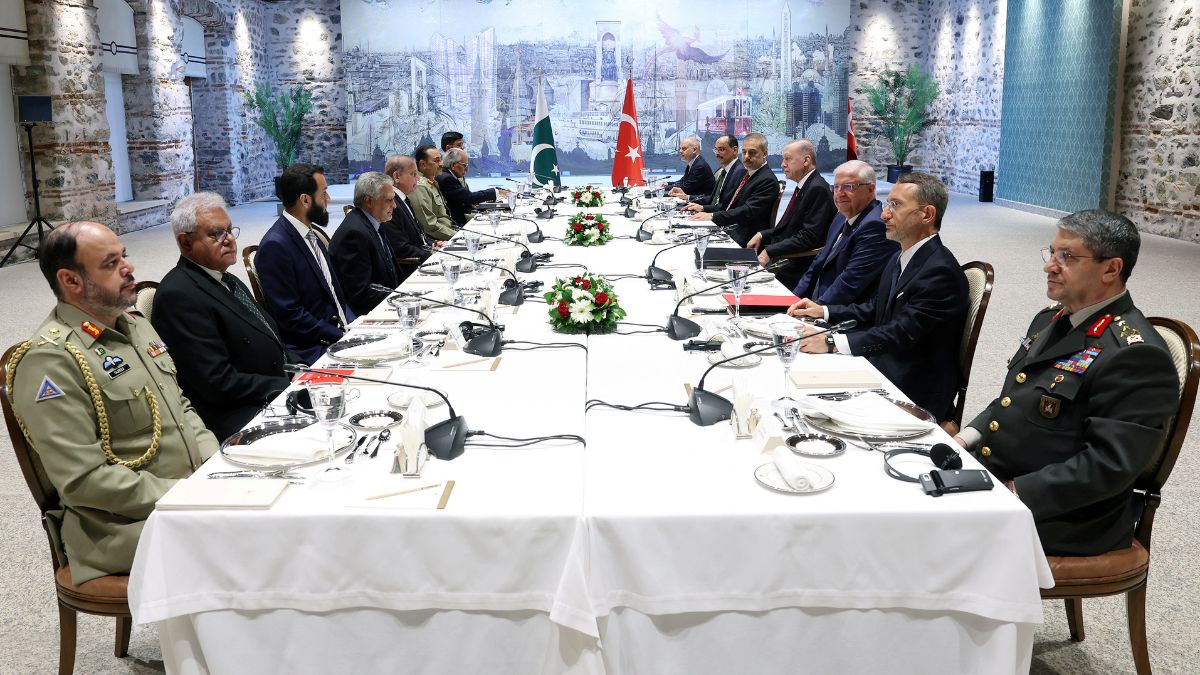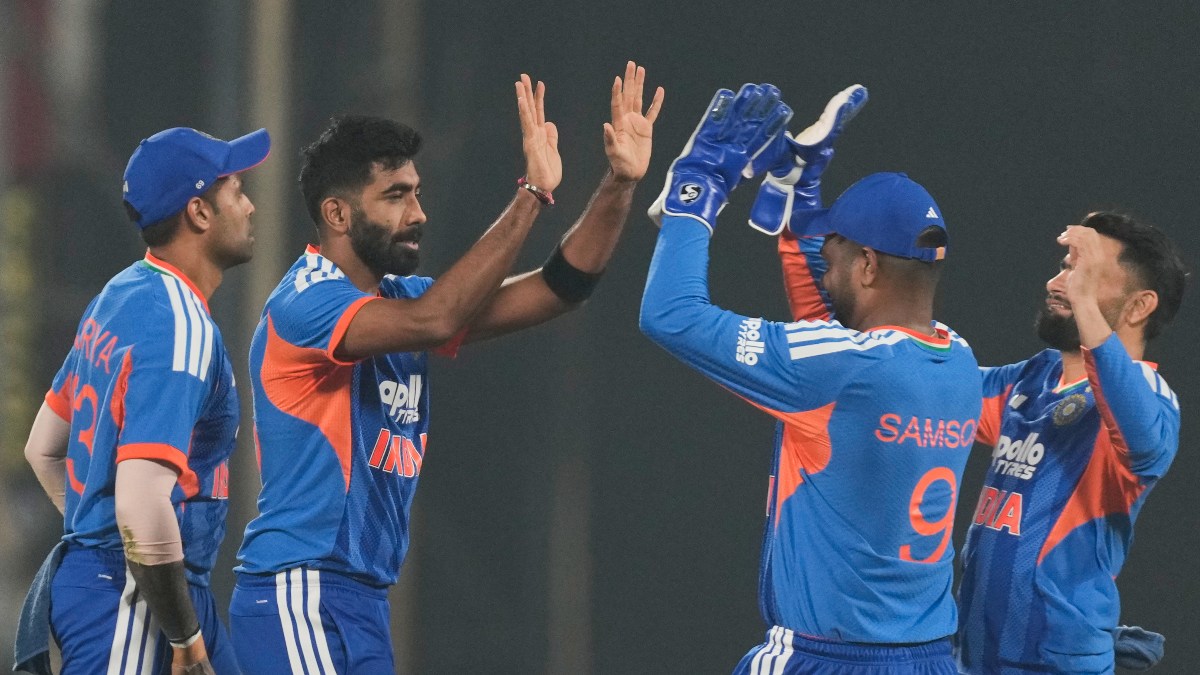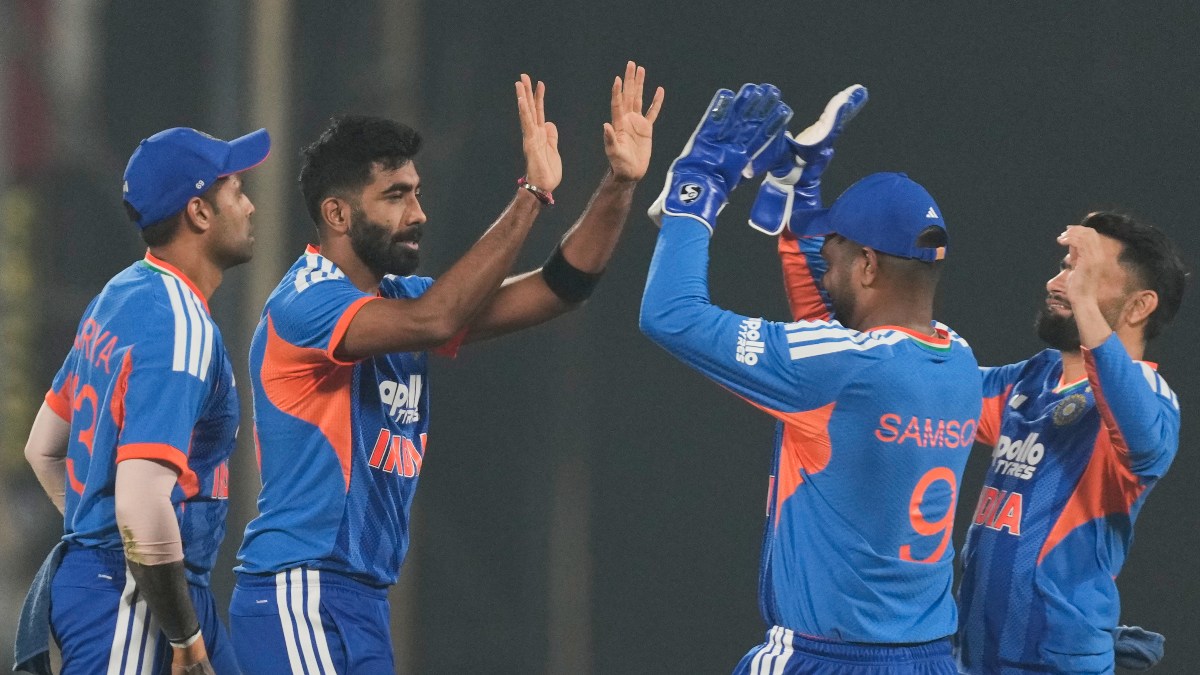It is increasingly visible now that recent developments have placed Pakistan’s military at the forefront of both governance and international engagement.
At the centre of this shift is Field Marshal Asim Munir, Pakistan’s Chief of Army Staff, who has emerged as a towering presence beside Prime Minister Shehbaz Sharif — not only in strategic affairs but also on the diplomatic front.
From a rare appearance alongside the premier in foreign meetings to being the recipient of a historic military promotion, Munir’s expanding role has raised serious questions about the direction of Pakistan’s civil-military relationship.
Sharif meets Erdogan, Munir tags along
On May 25, Sharif landed in Istanbul to meet Turkish President Recep Tayyip Erdoğan as part of a broader official tour aimed at consolidating relations with allies.
Sharif’s agenda included discussions on regional security, economic cooperation, and counter-terrorism. However, what stood out most was his decision to include Pakistan’s military chief, Field Marshal Munir, in his diplomatic entourage.
In a highly unusual protocol move, Sharif introduced Munir to Erdoğan during the high-level talks. Also present were Turkish officials including Foreign Minister Hakan Fidan, Defence Minister Yasar Guler and intelligence chief Ibrahim Kalin.
This development attracted attention for its implications — in Pakistan, military leaders do not typically accompany the prime minister on official foreign visits, making this an extraordinary step.
Erdoğan’s office issued a statement noting that Turkey and Pakistan were committed to enhancing collaboration, particularly in the fields of defence, energy, and transportation.
The Turkish side also highlighted the importance of solidarity in education, intelligence cooperation, and technological exchanges to combat terrorism. Erdoğan reiterated Ankara’s desire to deepen ties with Islamabad, stating that it was in both countries’ strategic interests to coordinate closely.
How Turkey sided with Pakistan during recent tensions with India
The visit to Turkey comes on the heels of heightened regional tensions between Pakistan and India. The situation escalated following a deadly terror attack in Pahalgam, Indian-administered Kashmir, in which 26 civilians lost their lives.
India responded with Operation Sindoor — a series of retaliatory military actions on terror targets. Pakistan, in turn, launched its own military response, reportedly under the codename "Operation Bunyanum Marsoos."
In this context, the Turkish government publicly supported Pakistan’s position. Erdoğan’s earlier show of solidarity had even prompted informal boycotts of Turkish goods in India.
Notably, Turkish military presence in Pakistan also grew more visible during this period, with a C-130 Hercules aircraft landing in Karachi on April 27 and a Turkish Ada-class anti-submarine corvette docking at the Karachi port on May 2.
While Turkish officials stated these were routine defence activities, reports pointed to the use of Turkish-made drones by Pakistani forces during the confrontation.
Munir, while in Istanbul, also held talks with the Turkish Land Forces Commander. Officials said the meetings were part of broader deliberations on bilateral cooperation and regional security issues.
Following his stop in Turkey, Sharif is scheduled to visit Iran, Azerbaijan, and Tajikistan between May 25 and 30.
According to Pakistan’s Foreign Office, the primary goal of the trip is to personally thank “friendly” countries for their diplomatic and moral support during the standoff with India.
Accompanying Sharif are several key figures in his administration, including Deputy Prime Minister and Foreign Minister Ishaq Dar, Information Minister Attaullah Tarar, and Special Assistant on Foreign Affairs Tariq Fatemi.
Pakistan makes a mockery of its own narrative
While international engagements showcased Pakistan’s external outreach, back home, a ceremonial dinner hosted by Munir attracted widespread attention — and criticism.
The event, described as a tribute to the resilience of the political leadership and the armed forces, was held in Islamabad shortly before the prime minister’s departure abroad.
In a dramatic moment during the dinner, Munir presented Sharif with a framed image that was described as a commemorative memento from Operation Bunyanum Marsoos.
The picture was claimed to depict Pakistani troops in action against India. However, eagle-eyed social media users quickly identified the photo as originating from a 2017 Chinese military exercise.
The revelation prompted widespread ridicule. Pakistani journalist Taha Siddiqui posted on X (formerly Twitter): “Apparently the Pakistan Army Chief has gifted PM Shehbaz Sharif a dated Chinese military photo as a souvenir to illustrate Pak Army attack against India. So not just a fake victory narrative but also a fake photo with it. What a joke @OfficialDGISPR.”
🔴 Apparently the Pakistan Army Chief has gifted PM Shehbaz Sharif a dated Chinese military photo as a souvenir to illustrate Pak Army attack against India.
— Taha Siddiqui (@TahaSSiddiqui) May 25, 2025
So not just a fake victory narrative but also a fake photo with it.
What a joke @OfficialDGISPR pic.twitter.com/8No2iB6XBj
The event was attended by an array of dignitaries, including Pakistan President Asif Ali Zardari, Senate Chairman Yousaf Raza Gilani, National Assembly Speaker Ayaz Sadiq, chief ministers, governors, federal ministers and senior officials from the armed forces.
Despite the high-profile guest list, the credibility of the occasion was quickly undermined by the social media backlash, turning what was intended as a symbol of unity into a subject of satire.
A rare promotion for Munir
Adding to Munir’s growing prominence, the federal cabinet recently approved a rare elevation of his military rank. Munir was promoted to Field Marshal, a designation not seen in Pakistan since 1959, when Ayub Khan, then the army chief, conferred the title upon himself after seizing political control through a coup.
The official statement from the Prime Minister’s Office read: “In recognition of his brilliant military leadership, courage, and bravery, ensuring Pakistan’s sovereignty and territorial integrity and courageous defence against the enemy, the cabinet approved the prime minister’s proposal to promote General Syed Asim Munir to the rank of field marshal.”
In Pakistan, the title of field marshal is typically symbolic and held for life. Munir thus becomes only the second individual in the country’s history to hold the rank.
A long history of military dominance in Pakistan’s governance
Pakistan’s military has long exerted significant influence over the country’s civilian institutions. Since its independence in 1947, the armed forces have directly governed the country for over three decades and have consistently maintained a central role in national policymaking.
Though nominally under civilian rule, the perception persists that the real decision-making power lies in Rawalpindi, home to the military’s General Headquarters (GHQ).
The current scenario reflects that pattern. While civilian leaders like Sharif hold formal authority, the military under Munir appears to be closely steering not just defence and intelligence but also diplomacy and economic planning.
Munir also co-chairs the Special Investment Facilitation Council (SIFC) with Sharif — a high-level body formed in 2023 to fast-track investments by streamlining bureaucratic processes and bypassing red tape.
Despite denials from the military establishment, critics argue that the SIFC institutionalises military involvement in economic governance.
The Pakistani military’s growing role in civilian affairs has also led to renewed tensions with opposition figures, most notably the leadership of the Pakistan Tehreek-e-Insaf (PTI) party.
Former Prime Minister Imran Khan and his supporters have repeatedly accused the military of orchestrating crackdowns on party leaders and manipulating the 2024 general election.
Although PTI-affiliated candidates ran as independents due to a ban on the party’s participation, they ended up winning more seats than any other political group. Still, it was the coalition of Sharif’s Pakistan Muslim League (Nawaz) and the Pakistan People’s Party that formed the government after post-election negotiations.
The PTI has accused both the military and the caretaker government of electoral interference — claims that both the civilian and military leadership deny.
The events of the past few weeks offer a revealing snapshot of Pakistan’s contemporary governance model. Field Marshal Asim Munir is now at the centre of the country’s most consequential decisions.
With inputs from agencies


)

)
)
)
)
)
)
)
)



